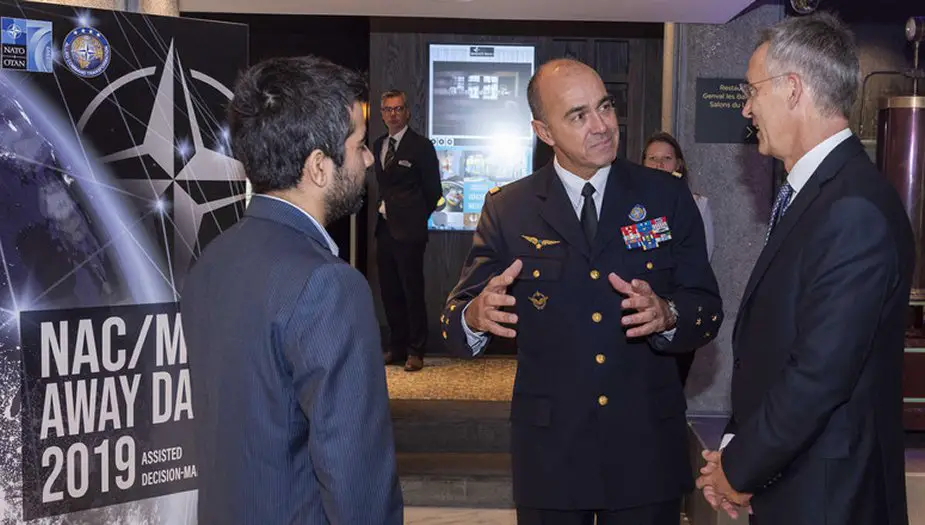Breaking news
NATO ambassadors and military leaders meet to discuss disruptive technologies.
Speaking at the event, NATO Secretary General Jens Stoltenberg said: “Today, emerging and disruptive technologies are having a profound impact on how the Alliance carries out its core tasks. How we understand, adopt and implement those technologies will largely determine our future security, and NATO will play a key role in driving this change”.

The meeting was part of the Alliance’s efforts to leverage the power of data science, machine learning and other new technologies to improve its decision-making. (Picture source: NATO)
The meeting took place in Genval, Belgium. It was part of the Alliance’s efforts to leverage the power of data science, machine learning and other new technologies to improve its decision-making. This is a follow-up from the Brussels Summit in 2018, where Allied leaders declared that NATO will continue to enhance its intelligence, strategic awareness, advance planning and decision-making.
Slovak colonel Martin Achimovič has been appointed as head of the NATO’s Counter-Intelligence Centre of Excellence on October 1. The role of NATO’s centre is to respond to the current variable and changing security issues and threats in a regional and international context, SITA wrote. The centre was established in 2015 and is located in Krakow. It uses the Slovak military training area in Lešť (Banská Bystrica Region) for training purposes.
The Counter-Intelligence Centre of Excellence officially expanded the list of its member countries on October 1, with the USA joining in. "The centre is currently participating in strengthening the security environment, in the ability to predict risks and respond flexibly to the current hybrid threats of 11 NATO countries," said Danka Capáková, a spokesperson for the Defence Ministry, as quoted by SITA. Before the USA joined, the member countries included Croatia, the Czech Republic, Germany, Hungary, Italy, Lithuania, Romania and Slovenia. The coherence and effectiveness of this centre is the result of close cooperation not only between Poland and Slovakia but of the cooperation of all the member countries and entities that underpin the effective implementation of the given objectives, Capáková added.
The Annual Conference for NATO Cyberspace Operations Education and Training (E&T) organized by NATO Cooperative Cyber Defence Centre of Excellence (CCDCOE) was opened today, Oct; 2, in Tallinn, Estonia. The conference brings together more than 40 experts from various NATO Commands, NATO Education and Training Facilities, national education institutions, cyber commands and other partner institutions to discuss current requirements and needs for cyberspace training and education for the whole of NATO. “The greatest challenge in cybersecurity is the human factor, and the only way to tackle this problem is by training and education. As the Department Head for Cyberspace Operations in NATO, we are glad to welcome the high-level group of cyber training experts in Tallinn. Our mission is to ensure the availability of necessary training opportunities across the alliance,” said in his opening remarks Colonel Jaak Tarien, Director of the NATO CCDCOE.
The CCDCOE is the organizer of the Annual Discipline Conference as the Department Head for Cyberspace Operations E&T in NATO. In 2018, the Centre was assigned by NATO Allied Command of Transformation the responsibility to coordinate NATO´s education and training in the field of cyber. As such, the CCDCOE translates NATO’s training requirements for Cyberspace Operations into E&T solutions and coordinates all the efforts to overcome identified gaps in individual and collective training issues.


























